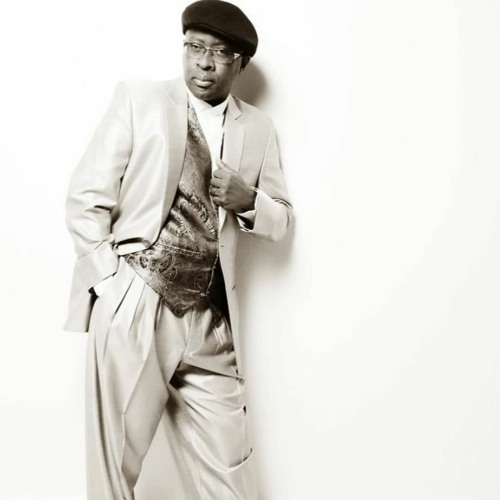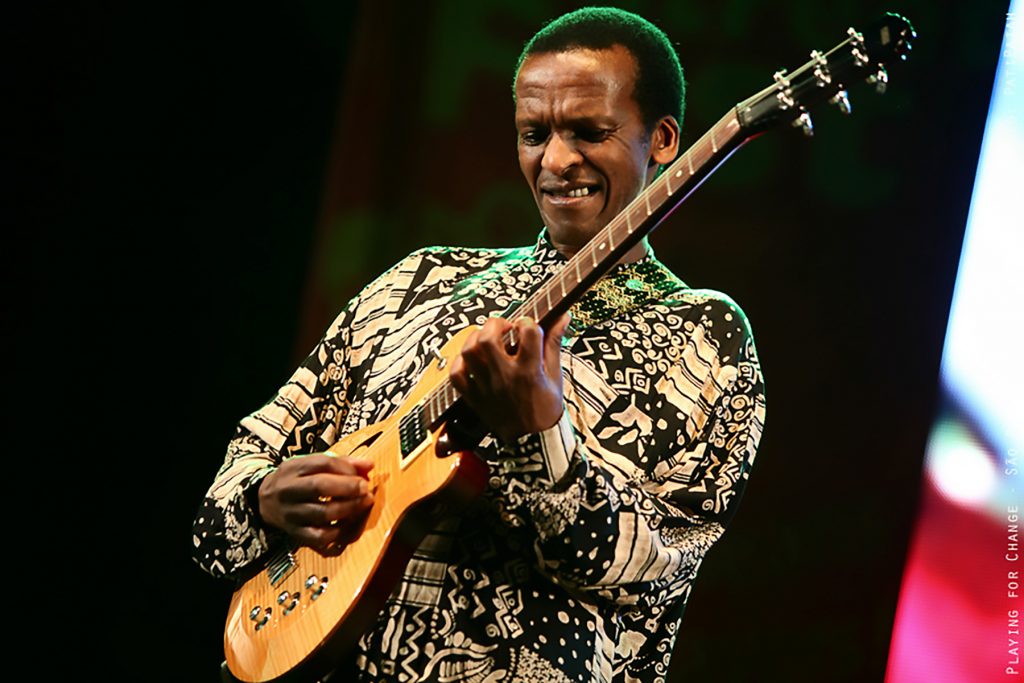I did not go through formal music education, but deep inside me I always felt that music was my true calling. As I journeyed through my career, I realized something was missing in my musical setup. I was unsure about the vocal keys and chords I was using, and my voice projection did not yet have that outstanding quality—the kind of appeal and beauty that draws people in.
I decided to seek help from seasoned musicians. The first name that came to my mind was Ray Phiri, a man I admired greatly. I wanted him to guide me in vocal techniques and help me discover a rhythm that matched my style—whether in pop, soul, jazz, Afro-pop, or blues. Ray Phiri had already proven his brilliance when he collaborated with Paul Simon on the world-famous album Graceland.
But I had a problem—I did not have Ray Phiri’s contact details. After a fruitless search, I remembered Louis Mhlanga, a fellow Zimbabwean musician who had relocated to South Africa and was thriving in the music industry. I had worked with Louis before on the Chenjerera Upenyu AIDS awareness song, which brought together more than 20 Zimbabwean artists.
So I phoned Louis and explained my desire to work with Ray Phiri on my forthcoming album. Louis assured me he was close to Ray and promised to speak to him directly about my proposal. Instead of simply introducing me, Louis began acting as a go-between. He persuaded me that it would be better if he too were involved in the project, since he knew Ray well and could help him adapt to Zimbabwean rhythms.
Although I had not budgeted for two musicians, I agreed—believing it was a good idea. I went out of my way to raise extra funds. I booked two Air Zimbabwe tickets, arranged accommodation for them at Ambassador Hotel, covered food and drinks, hired a car for their convenience, and prepared their allowances and session fees. It was a heavy financial burden, but I believed the sacrifice was worth it for the success of my Marijata album.
Yet, when I went to welcome them at Harare International Airport, my heart sank. Louis introduced me to Ray Phiri in the most humiliating way, saying, “He is not a big artist.” Of course, I am not—but such words were not an introduction. I felt belittled, betrayed, and embarrassed before someone I deeply respected.
The next day, we were to rehearse all eight songs at Shed Studios on the corner of Robert Mugabe and Fourth Street. The session musicians all arrived on time: Kuda Matimba on keyboards, Kenny Neshamba on percussion, Chiwoniso Maraire on backing vocals, Kelly Rusike on bass, Sam Mataure on drums, Ray Phiri on lead guitar, and Louis Mhlanga on rhythm guitar. Prudence Katomeini Mbofana missed the first session.
I had hoped Ray Phiri would take me through vocal techniques, rhythm, and professional structuring. But instead, Louis Mhlanga seized control. He gave instructions as if it was his own project. I was pushed into a corner, voiceless, powerless. My dream was turning into a nightmare.
Louis ordered the musicians to start recording immediately. I thought we were rehearsing, but he treated it as final recording. Ray, instead of mentoring me, simply joined the jam session. In just three hours, we recorded all eight songs in a rushed, haphazard way. No repeats, no refinements. If you listen to the album today, you will notice most introductions sound the same—that was Louis’s influence, not the full creativity of the band.
After release, many musicians asked me why Ray Phiri’s guitar was barely heard. Louis had overshadowed him, playing both lead and rhythm guitar. What was the point of bringing Ray to Zimbabwe if he was not given space to contribute? I had wanted Ray to guide me, to help me find my voice and rhythm. Instead, I was robbed of the very knowledge I sought.
The studio time I had paid for—a whole week—went to waste. I had planned four days of recording, two days of refining, and one for arranging new styles of singing. Instead, it became a vacation for Louis and Ray. They spent their days visiting relatives, friends, and girlfriends in Harare, while my dream was reduced to ashes.
I realized, painfully, that Louis had sabotaged my project. He played what he wanted, not what I envisioned. His excuse was that Ray didn’t know Zimbabwean music well enough to lead. But I had called Ray because of his international creativity, his genius in arrangement and production. Louis robbed me of that chance to learn.
This experience left me bitter. Yet I forgave Louis, though he undermined my preparations and denied me the growth I yearned for. Still, I ask myself: what was the purpose of Ray Phiri coming to Zimbabwe, only to collect benefits without offering the mentorship I had hoped for? Truly, the devil was at work to destroy my dream.
But I also remember the musicians who brought the best out of me. Leonard “Picket” Chiyangwa, my brother in totem (Hungwe), gave me the sound I loved. On my maxi single Kumusha and Mukoma Tichafa, his lead guitar and arrangements still warm my heart.
The other was the late Fortune Muparutsa, a gifted multi-instrumentalist and brilliant producer. At his Wheels of Fortune studio, he recorded my album with the track Rudhiya, which I still consider my best. Fortune brought out my true voice and direction—the kind of assistance I had hoped to get from Ray Phiri. I miss him dearly. He was in a class of his own.
It is far better to work with people who bring the best out of you than with those who drag you down.
As a Pan-Africanist, I believe in the strength of African people. But I feel saddened when my brothers act as though I don’t belong. Trust and love among us must be cherished, not betrayed.
Something similar happened to me in 2010 when I went to South Africa to buy musical instruments. The previous year I had received a donation of more than US$90,000 from the Japanese Embassy to buy equipment. That time, the legendary Dorothy Masuka introduced me to Don Laka, a celebrated South African jazz musician. She had wanted me to meet Jonas Gwangwa, another famed Jazz musician, but later chose Don Laka.

I was excited to meet him. Don promised to help me buy instruments at discount prices through his connection with Peter Tuerk, owner of Turnkey Music and Multimedia. The next day, Don drove me in his luxury car to Randburg, where he introduced me to Mr. Tuerk. Because of Don’s account with the company, I was given a big discount.
But behind my back, Don played a dishonest game. He arranged that all the discount amounts be deposited in his personal account. I was unaware that there were two pricing systems: showroom prices for ordinary buyers, and storeroom prices for regulars like Don.
On my second visit, I went alone and learned the shocking truth. The manager told me Don had used my discounted money to buy instruments for himself. Furious, I confronted Don by phone from Mr. Tuerk’s office. He shamelessly admitted the money was his “payment” for helping me.
I threatened to report him to the police—and I did. The media picked up the story, and fearing for his reputation, Don begged me to withdraw the case. He told me to return to Turnkey and claim my money back. With that refund, I bought the instruments I had been cheated out of.
In contrast, my experience in Japan was pure professionalism. Music producers there treated me with respect and guided me without exploiting me. One even traveled to Harare to set up the Jenaguru Music Studio. They remain my friends to this day.
Looking back, I see a painful truth: not every African brother is honest or supportive. Some exploit ignorance for personal gain. Yet I also cherish those who uplifted me—Picket, Fortune Muparutsa, the Japanese producers.
This is my journey of betrayal, forgiveness, and lessons learned. My dream of finding my true voice has been tested by fire, but I still believe in the beauty of music, and in the power of those who bring out the best in us.

